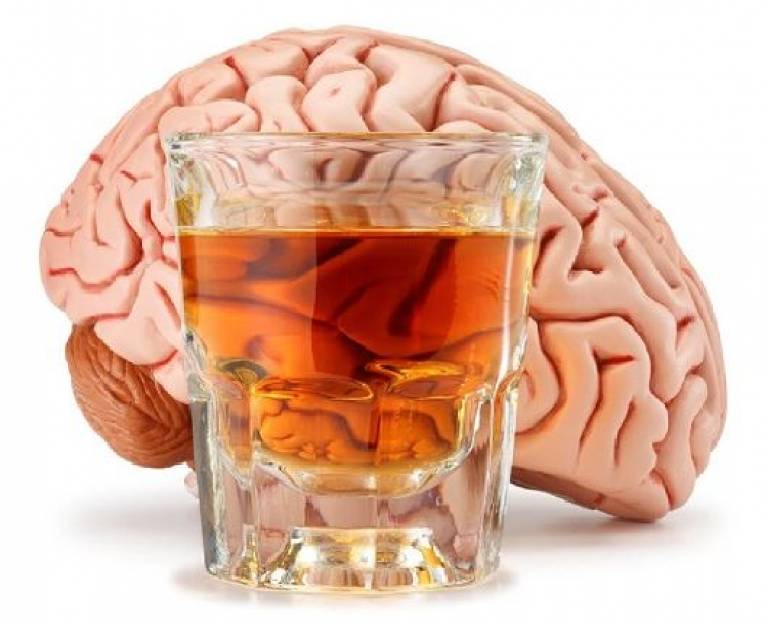An IEHC and Oxford research paper is ranked the 20th most-discussed paper in the world (2017)
14 December 2017
A Research paper by colleagues in IEHC and Oxford University was ranked the
 altmetric.com/top100/2017/#list&institution=University%20College%20London" target="_self">20th most-discussed
paper in the world in 2017 (from 2.2 million research outputs).
altmetric.com/top100/2017/#list&institution=University%20College%20London" target="_self">20th most-discussed
paper in the world in 2017 (from 2.2 million research outputs).
New results from the Whitehall II imaging substudy show that moderate alcohol intake is associated with increased risk of adverse brain outcomes and slightly steeper cognitive decline.
Heavy drinking is associated with dementia, Korsakoff's syndrome, and widespread brain atrophy. While smaller amounts of alcohol have been linked to protection against cognitive impairment, few studies have examined the long-term effects of moderate alcohol on the brain.
The results show that compared with abstinence, moderate alcohol intake is associated with increased risk of adverse brain outcomes and slightly steeper cognitive decline in lexical fluency. The hippocampus is particularly vulnerable. No protective effect was found for small amounts of alcohol over abstinence.
The study has been published by the British Medical Journal:
Moderate alcohol consumption as risk factor for adverse brain outcomes and cognitive decline: longitudinal cohort study. Anya Topiwala, Charlotte L Allan, Vyara Valkanova, Enikő Zsoldos, Nicola Filippini, Claire Sexton, Abda Mahmood, Peggy Fooks, Archana Singh-Manoux, Clare E Mackay, Mika Kivimäki, Klaus P Ebmeier. BMJ 2017; 357 (Published 06 June 2017)
Some links to media coverage stories:
The Guardian: https://www.theguardian.com/society/2017/jun/06/even-moderate-drinking-can-damage-the-brain-claim-researchers
The Daily Mail: http://www.dailymail.co.uk/health/article-4577480/Just-one-pint-night-reduce-size-brain.html
 Close
Close



